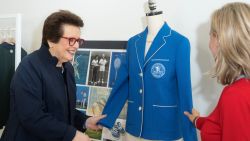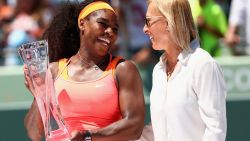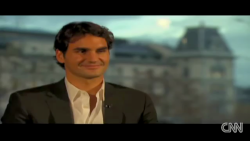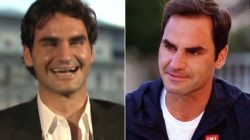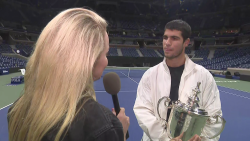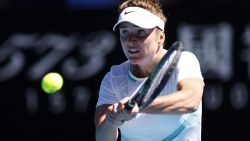And so a golden career is nearing the end. Andy Murray’s body is giving up on him.
Four months shy of his 32nd birthday, the Scotsman, arguably Britain’s greatest sportsperson, has admitted tearfully that the ceaseless, thudding pain in his hip, which has made even putting on his socks an ordeal, will bring his playing days to a premature end. Monday’s Australian Open first-round match against Spaniard Roberto Bautista Agut could be his last.
“The pain is too much,” the Briton, who has plunged to 230 in the world rankings, said in an emotional press conference in Melbourne Friday.
He had to leave the room to compose himself before returning to admit he had been struggling for “a long time.” The 31-year-old was reportedly not the only one in the room crying. Some journalists shed a salty tear, too, because before them was a man who had achieved greatness but not changed as a person since he first emerged onto the men’s Tour as a gangly, gifted, hirsute teenager.
Witty, honest, assiduous, decent – all are adjectives used in the last few hours to describe the father of two.
READ: Roger Federer: My dream opponent would be…

‘Greatest impact yet to come’
He can look back on a remarkable career: three grand slam titles, the first male Brit to win Wimbledon in 77 years, knighted by Queen Elizabeth II in 2016, 45 titles, two Olympic golds, more than $61m in prize money, a Davis Cup winner. An undoubted champion on the court, but perhaps a greater one off.
For Murray will also be remembered as the lone male voice who championed equality in a sport where sexism rows are almost as frequent as Trump administration departures.
“Your greatest impact on the world may be yet to come,” tennis great Billie Jean King tweeted to the Scot. “Your voice for equality will inspire future generations.”
To envisage what influence Murray could wield once the pain has eased requires a look back to what the former world No.1 said and did while atop the tennis mountain during a golden era for the men’s game.
READ: Federer on a wrestler’s role in first kiss with wife Mirka
At the beginning of 2012, the Briton became the first player to employ a former tennis great as a coach, adding Ivan Lendl to his staff. Others followed: Novak Djokovic brought in Boris Becker, then Andre Agassi; Roger Federer sought out Stefan Edberg.
Having heralded the era of the super coach, Murray then turned to France’s former women’s No.1 Amelie Mauresmo, becoming the first high-profile tennis player to hire a woman as a coach.
Read: There is sexism in tennis – King

Though employing Mauresmo did not start a trend, it did enlighten the player. The scrutiny heaped on the former Wimbledon champion during their two-year partnership came as a surprise. It “opened my mind,” he said.
“She was slated every time I lost, which is something my former coaches never, ever experienced,” Murray once said of his time with Mauresmo, a two-time grand slam champion.
In another interview, he remarked: “The amount of criticism she got in comparison to any other coach I’ve ever worked with, it’s not comparable at all. It certainly highlighted a few things I hadn’t given loads of thought to.”
Fighting for equality in all sports
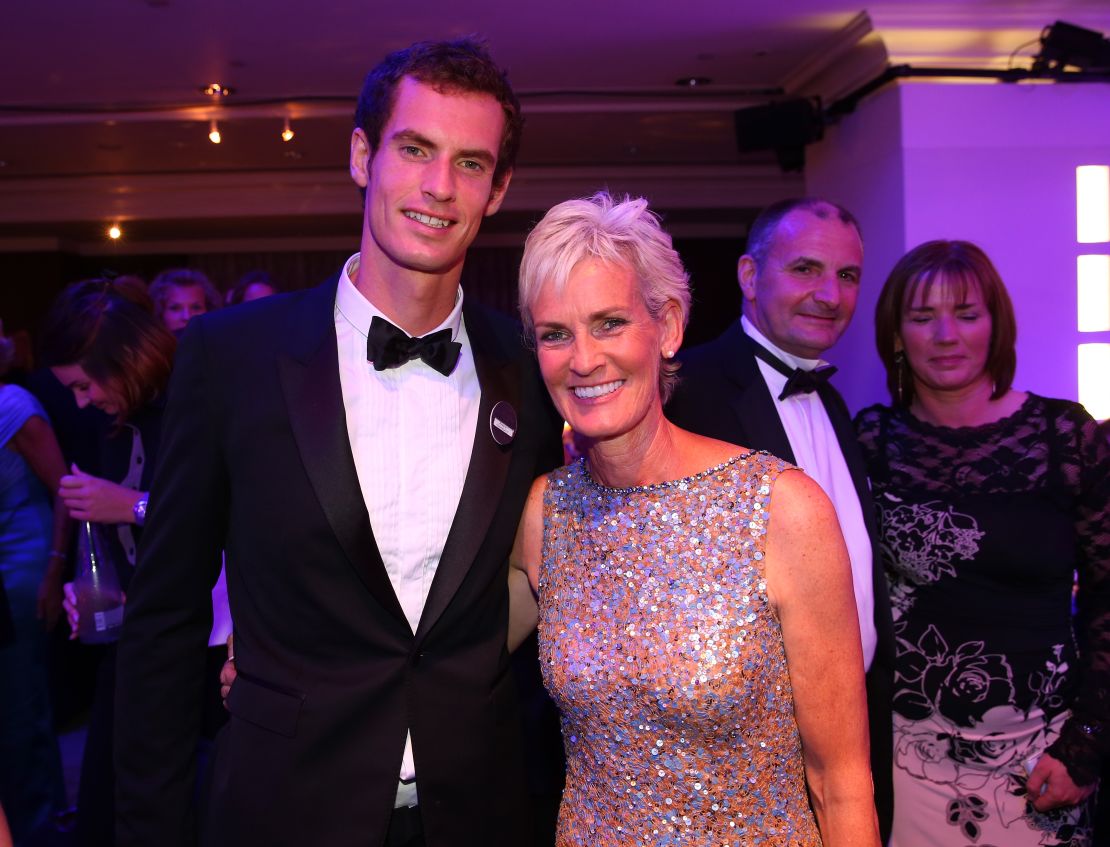
Attuned to the insidiousness of misogyny, Murray proceeded to speak out, to criticize, to call for equality. He wrote an essay for the BBC about the importance of gender equality in all sports. He became a feminist.
That he was the only top male player prepared to take part in the discussion, that it required a famous man highlighting prejudices for the message to become louder underlines how much there is still to be done in sport, and society, before equality is achieved.
“A little bit,” was Murray’s response when asked in an interview last year whether he felt like the was the only male player standing up for women.
King, who has been at the vanguard for freedom and equality, once said of tennis’ leading man on equal rights: “Andy’s been great, and without even realizing it, probably.”
READ: Roger Federer ponders eventual retirement
In 2016, Murray criticized Novak Djokovic, whom he has known since the age of 11, after the Serbian argued that male players deserved more prize money than women because they attracted more spectators and generated greater revenues.
Djokovic has since apologized but, nevertheless, Murray stuck his head up above the parapet, saying the 14-time grand slam champion’s views “do not stack up.”
“Men’s tennis has been lucky over the last nine or 10 years with the players they’ve had. That’s great, but the whole of tennis should capitalize on it, not just the men’s game,” he said.
A few months later, at the Rio Olympics, a smirking Murray corrected BBC’s John Inverdale when the presenter congratulated the player for being the first person to win two golds in tennis. He was, in fact, the first man to secure back-to-back singles golds.
“You’re the first person to ever win two Olympic tennis gold medals, that’s an extraordinary feat, isn’t it?” asked Inverdale, to which Murray said: “I think Venus and Serena have won about four each…”
Last year, after losing to Sam Querrey at Wimbledon, he was again forthright with the media. When a journalist described the big-serving Querrey as the first American player to reach the semifinal of a grand slam since 2009, Murray quickly retorted: “Male player.” Serena Williams and Sloane Stevens had, of course, won major titles in that time.
Visit cnn.com/sport for more news and videos

Neither has Murray solely kept within the bounds of tennis. In response to Ada Hegerberg being asked to twerk on stage after becoming the first woman to win football’s Ballon d’Or, the Scotsman posted on Instagram: “Another example of the ridiculous sexism that still exists in sport. Why do women still have to put up with that s—? I’ve been involved in sport my whole life and the level of sexism is unreal.”
He has spoken out on equal pay, on growing up surrounded by women – his mum, Judy, a tennis coach, is the person who led him on his path to glory – and feminism.
“Have I become a feminist? Well, if being a feminist is about fighting so that a woman is treated like a man then, yes, I suppose I have,” Murray wrote on his website in 2015.
Murray will be thought of as a brilliant champion, an exceptional sportsman who fulfilled his potential, but he also leaves behind a legacy as an advocate for women. When his peers remained silent, Murray put himself on the front line in the fight against sexism in sport.






